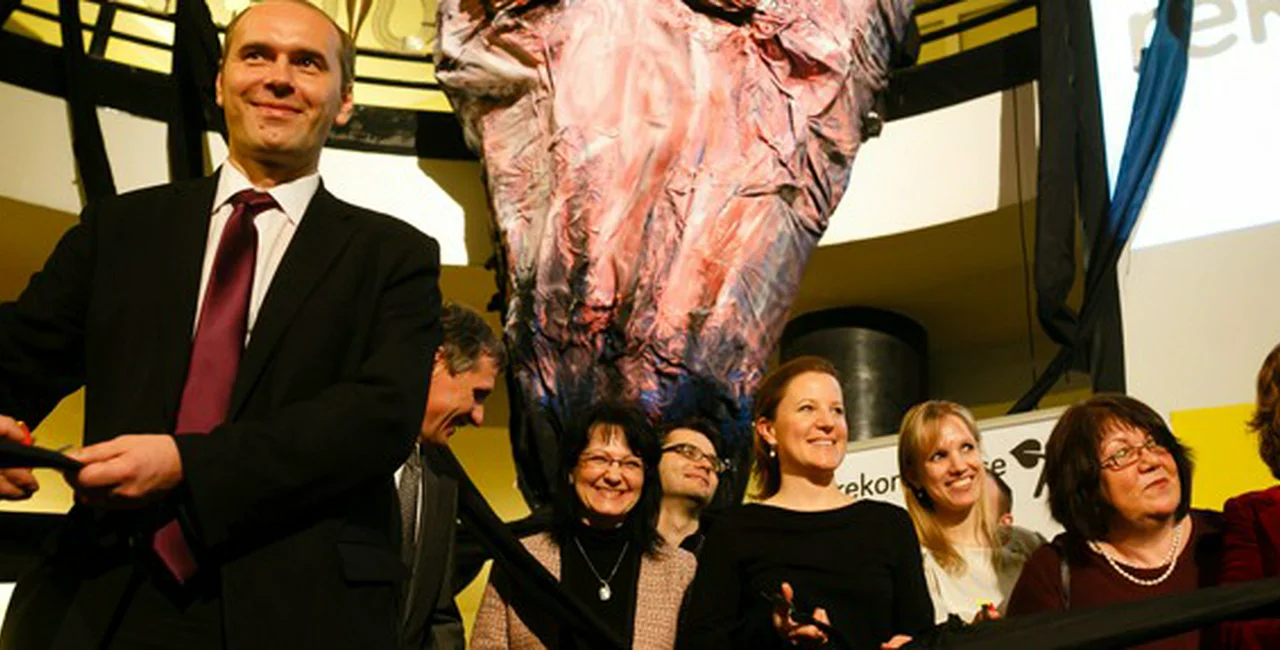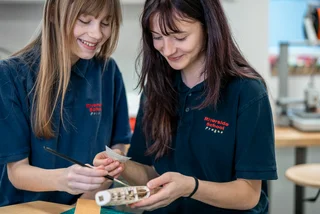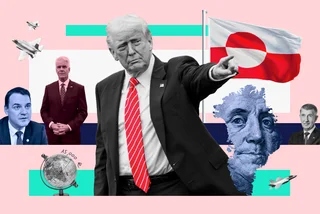If there is one topic which unites political parties, it is corruption – both in their supposed claims to combat it and in the scandals which implicate their members. Neither the left nor the right is immune. Unsurprisingly, the public has become increasingly disenchanted. Following current events over the last few years, it’s easy to doubt whether any solutions will be found. Yet, some changes may present solutions.
Corruption Index
Transparency International’s Corruption Perception Index shows a general decline in the Czech Republic’s standing in regards to corruption. In 1996, when the country first appeared in the survey, it was ranked 25 with a score of 5.37. This placed it just after Poland with 5.57 – the highest ranking post-communist nation. Last year it received a score of 49 out of 100, placing it 54th of 176 countries. This has been its lowest ranking, which it also achieved in 2003.
While the index is a convenient shorthand, it is essentially an index of public opinion. While it’s fair to assume there is some correlation between public opinion and the degree of bribery, the index isn’t gauging acts of corruption. It’s hard to gauge what is going on until someone is caught with a wine box full of money.
Famous Cases
The arrest of David Rath in 2012 is only one of the most high profile cases. From the same year you can add Vlasta Parkanová from TOP 09, who the police arrested on charges of abusing her position as concerns the purchase of CASA aircraft; Pavel Kouda from the Social Democrats, the deputy regional governor from the Ústí nad Labem region, who was also charged with abusing his position connected with EU funds; and Marek Dalík, who has been dubbed “King of the Lobbyists” and connected to former Prime Minister Mirek Topolánek, who police arrested for trying to extract a bribe for the purchase of the Austrian designed and built Pandur II armored vehicle.
Beyond the abuse of power, the CASA purchase clearly demonstrates the financial waste involved. The CASA aircraft proved to have operational problems and the fleet of four planes were grounded. Parkanová, who was minister at the time of the purchase, apparently didn’t allow for an open tender. Police allege the purchase lost the state 658 million crowns.
Lack of transparency in public tenders is one of the main areas of concern within the Czech Republic. The problem is not isolated to the Ministry of Defense. Managers from the Road and Motorways Directorate (Ředitelství silnic a dálnic or ŘSD) have been accused of impropriety. Seven of them and a lawyer were arrested in 2011 for receiving kickbacks in 2005 and 2006, including 15 CZK million to the then head of ŘSD. This year, three people – two of whom are lawyers – from the directorship were arrested for embezzlement.
Given the exorbitant cost of road construction and noted delays, it is difficult not to see a connection between these problems and corruption. According to a report (in Czech) released by Ekologický Pravní Servis, a study in 2006 by the Czech branch of Mott MacDonald, an international engineering consultancy group, the cost of building a road in the Czech Republic per kilometer was 500 million CZK for a dual carriage in both direction in ordinary terrain here, and 280 million CZK across the border. Suffice to say, the price doesn’t reflect greater quality.
Upping the Stakes
One name connected to these many of these scandals is the new public prosecutor, Lenka Bradáčová. As deputy regional prosecutor for Ústí nad Labem, she was the one to charge Rath. She took on her current position a few months later in August 30th.
For many concerned with corruption, she is viewed as a symbol of a stronger and more effective force. The press has referred to her as “incorruptible”. According to a Respekt article she was known as “that black witch” by the criminal underworld in the North Bohemian region. She must have ruffled the feathers of the right people.
Most recently, Bradáčová accused the head of the police’s anticorruption taskforce, Tomáš Martinec, of fabricating a case against her. The charges concerned bias in the investigation of an IT tender with the Ministry of Social Affairs. It is known that the name of her estranged husband, Tomáš Hájek, appeared in a file, but according to the Attorney General Pavel Zeman, Hájek was peripheral to the case. Martinec denied the allegations, but stood down, claiming he was no longer able to work with the state prosecutor. Prime Minister Petr Nečas saw Martinec’s resignation as possibly improving relations between the police and the Office of Public Prosecutions.
Martin Fendrych wrote in a post (in Czech) before these events that it would be naïve to think Bradáčová, though he admits she is feared, is a significant change. Fendrych is correct in warning that so much hope can’t be placed on one person, but for the moment she appears to be active in ways others haven’t been.
Further Steps
Change has to come from outside the official bodies. Organizations such as aforementioned Transparency International and Ekologický Pravní Servis inform the public. Now the two organizations are joining forces in a new campaign called Rekonstrukce státu (Reconstruction of the State).

The initiative was launched in March this year. Their plan is a simple one. They want to pressure politicians to present and hopefully pass the nine proposed pieces of legislation which are on their webpage. The laws demand greater transparency and oversight, and try to limit if not completely abolish the perceived power of finance in Czech politics.
Rekonstrukce státu is far from the first initiative in this area. What may make it different is that it has the support of a number of anti-corruption organizations. David Ondráčka from Transparency International is one of the guarantors of this new initiative. It is exactly this joining of forces which he sees as making a difference. Another reason is the group’s pragmatism.
“We take nine very specific pieces of legislation which are already prepared and we just want to make sure that they are not stalled somewhere,” he said. Rekonstrukce státu hope the new laws will have a positive influence on behavior.
The proposals Rekonstrukce státu has made acknowledge that the problems with corruption are not the case of a few “bad eggs”. The problems are institutional. Authorities, no matter how diligent and unswerving, can only act after the fact. Only a more thorough change will promote higher ethics and discourage corrupt behavior.
“We believe that changing the rules of the game will change incentives, so that in the end those who really want to steal and manipulate will be more easy to prosecute than they are at the moment and in contrast those that act positively will be supported,” he added.
Of course, it’s naïve to think any single movement will be the panacea for a complex problem like corruption. Yet, even incremental change is change. The issue now is for these initiatives not to lose momentum.
Related articles












 Reading time: 5 minutes
Reading time: 5 minutes 


























